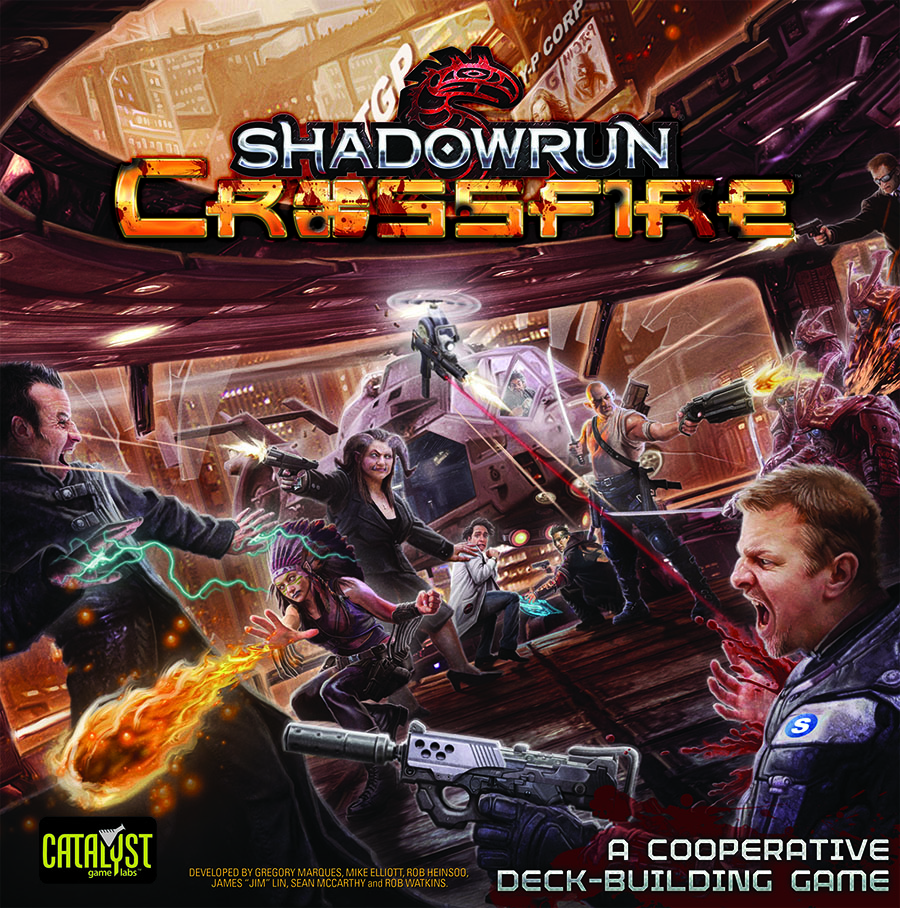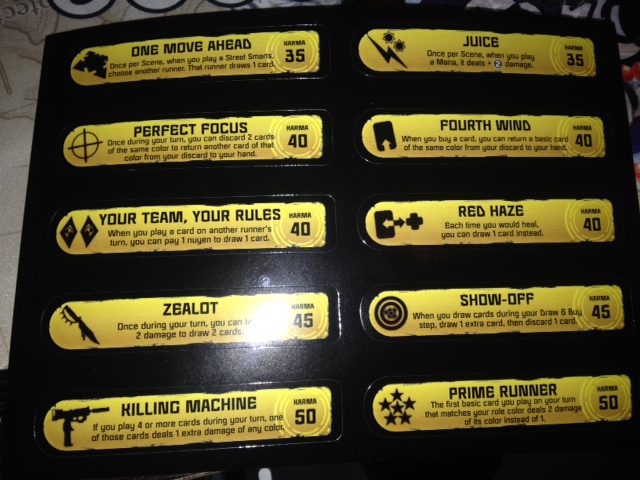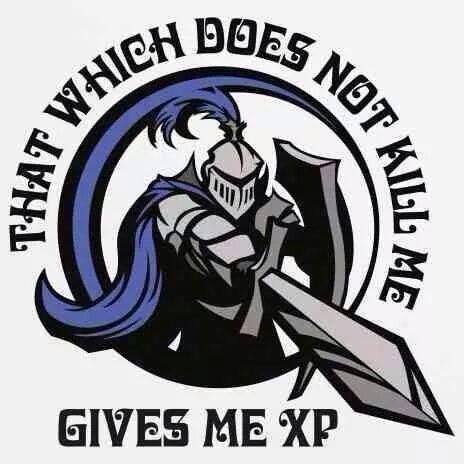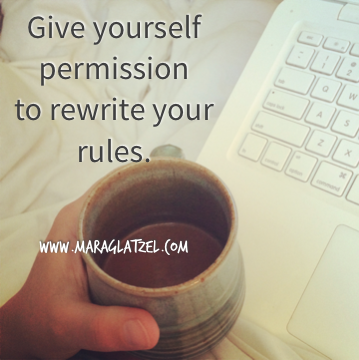I’m surprised more cooperative games don’t have variations in their progression systems. A given group of people is going to have a pretty different amount of time to spend in a given game than another group, and especially for self-contained games, it seems like there should be a progression speed slider. I’m mostly looking at tabletop RPGs and multi-session board games here; I’ve been playing the Shadowrun: Crossfire board game with some friends lately, and while I think it’s a great game, it has insanely slow progression.
Here’s how the game works: You have a character who starts with a basic deck. As a session (a “run”) progresses, your deck is going to increase as you play, and at the end of the session you flush the entire thing, and get a certain amount of XP (Karma) based on how successful the run is. You can then use this Karma to purchase upgrades, which change how you start the game and give you particular special abilities. It’s a neat system, and the ability to add on various means to make the runs harder on yourself for greater rewards is neat.
However, progression is SLOW. With a fresh group starting from scratch, you will have to win two games or lose five to get to your first upgrade; you’ll be playing the same mission each time until then. You’re not going to have the edge you need to go for any of the bonuses, and the game is pretty difficult; you stand a fair chance of losing each run. That first jump isn’t so bad, the first tier karma benefits are 5 karma apiece and you have one free slot to upgrade into. Here’s where it gets silly. To unlock another “slot”, you need to pay 10 karma, twice what you needed to get the first one. You THEN need to buy the upgrade, and upgrades cost anywhere from 5 to 50 karma, in increments of 5-10. You’re looking at a LONG time between your first and second upgrade, and a really long time before you’re looking at a fully kitted out character who can even attempt some of the harder missions.
The missions have expected karma levels, and some of the higher-tier ones suggest you have 75-100 karma at minimum to attempt them. That is a TON of playing this game just to get to that point– even the higher-tier missions only grant 4-6 karma each, and optional difficulty boosts add 1-2 karma apiece, and will rapidly overwhelm you.
We opted to simply double the experience gain, so that we could purchase fun upgrades after the first session and so that we can actually get to later missions. For our group, we might play this game once or twice a month, which, at 3-6 karma a session, is more than a year to reach the later missions, optimistically. It’s a fun game, but I’m pretty sure that it doesn’t need to have progression quite that slow. We’re speeding things up and should be able to do other interesting variants more quickly (and have more interesting options).
It’s a pretty minor tweak that works well in Shadowrun: Crossfire, and it makes the overall experience for the group a lot better– we can keep it fresh and different without spending a ton of time doing the same missions. It puts me in mind of the way I handle XP when I run tabletop games. I have a standing rule that experience is held constant across the party, so that everyone is always at the same experience level. It makes things better for people who can’t make every single session and it makes it a LOT easier for me to build and tune encounters; I know what kinds of things the party can handle.
I also give out XP to match the pace of the campaign. I used to make campaigns that were open-ended, but I’d fizzle out at some point and the story would falter. Now I plan a single significant arc and sometimes a few side arcs; the story has a specific end point that marks the conclusion of the story. If that means that I grant players a level every session for a few sessions, just so they can face whatever enemy I’ve got waiting in the wings, that’s fine– if we finish one game we can start another, and I usually start planning the next campaign about 1/3 to 1/2 of the way into my current one, so there’s always something ready to go.
I think that there’s a lot of value in tuning your game experience to the group you’re playing with, and it’s surprising to me that more games don’t have those options built-in. Certainly it’s not hard to just write house rules to suit you, but it’s interesting to me how many of the reviews of Shadowrun: Crossfire slam the game for its slow progression, and how many veteran D&D players mope about starting new level 1 characters, because it “takes so long to get to the good stuff”. Neither of those need be true.
Having talked to various people about house rules and other things, I’ve noticed that there’s often a moment of shock when I suggest changing the rules as they’re written to something that works better for us. Some people are staunchly opposed to it, other people look at me and have, in some cases, outright asked “wait, you can DO that?” as if there needed to be some permission to make the game more enjoyable.
The answer, really, is yes, yes you can. There are a number of games that I don’t like, but after a few rules tweaks are a lot of fun for me. If it’s a game I’m just playing with my friends who have the same viewpoint, why not change things so we can enjoy it more? It seems like a no-brainer.





1 comment